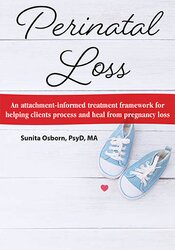Iscriviti oggi stesso a un corso online per imparare in modo flessibile e al tuo ritmo, senza orari fissi.


-
 Corso onlineChe tu sia nuovo alla terapia Internal Family Systems IFS) o che la pratichi da anni, registrati e scopri come perfezionare e personalizzare il modello per adattarlo alle esigenze specifiche dei tuoi clienti.Valore: € 1.140,66 *(275,99 €)€137,99Che tu sia nuovo alla terapia Internal Family Systems IFS) o che la pratichi da anni, registrati e scopri come perfezionare e personalizzare il modello per adattarlo alle esigenze specifiche dei tuoi clienti.21 ottobre 2020Corso onlineValore: € 1.140,66 *(275,99 €)€137,99Che tu sia nuovo alla terapia Internal Family Systems IFS) o che la pratichi da anni, registrati e scopri come perfezionare e personalizzare il modello per adattarlo alle esigenze specifiche dei tuoi clienti.Valore: € 1.140,66 *(275,99 €)€137,99
Corso onlineChe tu sia nuovo alla terapia Internal Family Systems IFS) o che la pratichi da anni, registrati e scopri come perfezionare e personalizzare il modello per adattarlo alle esigenze specifiche dei tuoi clienti.Valore: € 1.140,66 *(275,99 €)€137,99Che tu sia nuovo alla terapia Internal Family Systems IFS) o che la pratichi da anni, registrati e scopri come perfezionare e personalizzare il modello per adattarlo alle esigenze specifiche dei tuoi clienti.21 ottobre 2020Corso onlineValore: € 1.140,66 *(275,99 €)€137,99Che tu sia nuovo alla terapia Internal Family Systems IFS) o che la pratichi da anni, registrati e scopri come perfezionare e personalizzare il modello per adattarlo alle esigenze specifiche dei tuoi clienti.Valore: € 1.140,66 *(275,99 €)€137,99 -
 Corso onlineGabor Maté va oltre le semplici istruzioni e mostra esattamente come usa l'Indagine Compassionevole per aiutare la guarigione. Guarda come mette in pratica il suo metodo unico con più di 10 persone del pubblico.Valore: 689,89 € *(275,99 €)€137,99Gabor Maté va oltre le semplici istruzioni e mostra esattamente come usa l'Indagine Compassionevole per aiutare la guarigione. Guarda come mette in pratica il suo metodo unico con più di 10 persone del pubblico.15 luglio 2022Corso onlineValore: 689,89 € *(275,99 €)€137,99Gabor Maté va oltre le semplici istruzioni e mostra esattamente come usa l'Indagine Compassionevole per aiutare la guarigione. Guarda come mette in pratica il suo metodo unico con più di 10 persone del pubblico.Valore: 689,89 € *(275,99 €)€137,99
Corso onlineGabor Maté va oltre le semplici istruzioni e mostra esattamente come usa l'Indagine Compassionevole per aiutare la guarigione. Guarda come mette in pratica il suo metodo unico con più di 10 persone del pubblico.Valore: 689,89 € *(275,99 €)€137,99Gabor Maté va oltre le semplici istruzioni e mostra esattamente come usa l'Indagine Compassionevole per aiutare la guarigione. Guarda come mette in pratica il suo metodo unico con più di 10 persone del pubblico.15 luglio 2022Corso onlineValore: 689,89 € *(275,99 €)€137,99Gabor Maté va oltre le semplici istruzioni e mostra esattamente come usa l'Indagine Compassionevole per aiutare la guarigione. Guarda come mette in pratica il suo metodo unico con più di 10 persone del pubblico.Valore: 689,89 € *(275,99 €)€137,99 -
Diventa un affiliato
Argomenti di tendenza:











